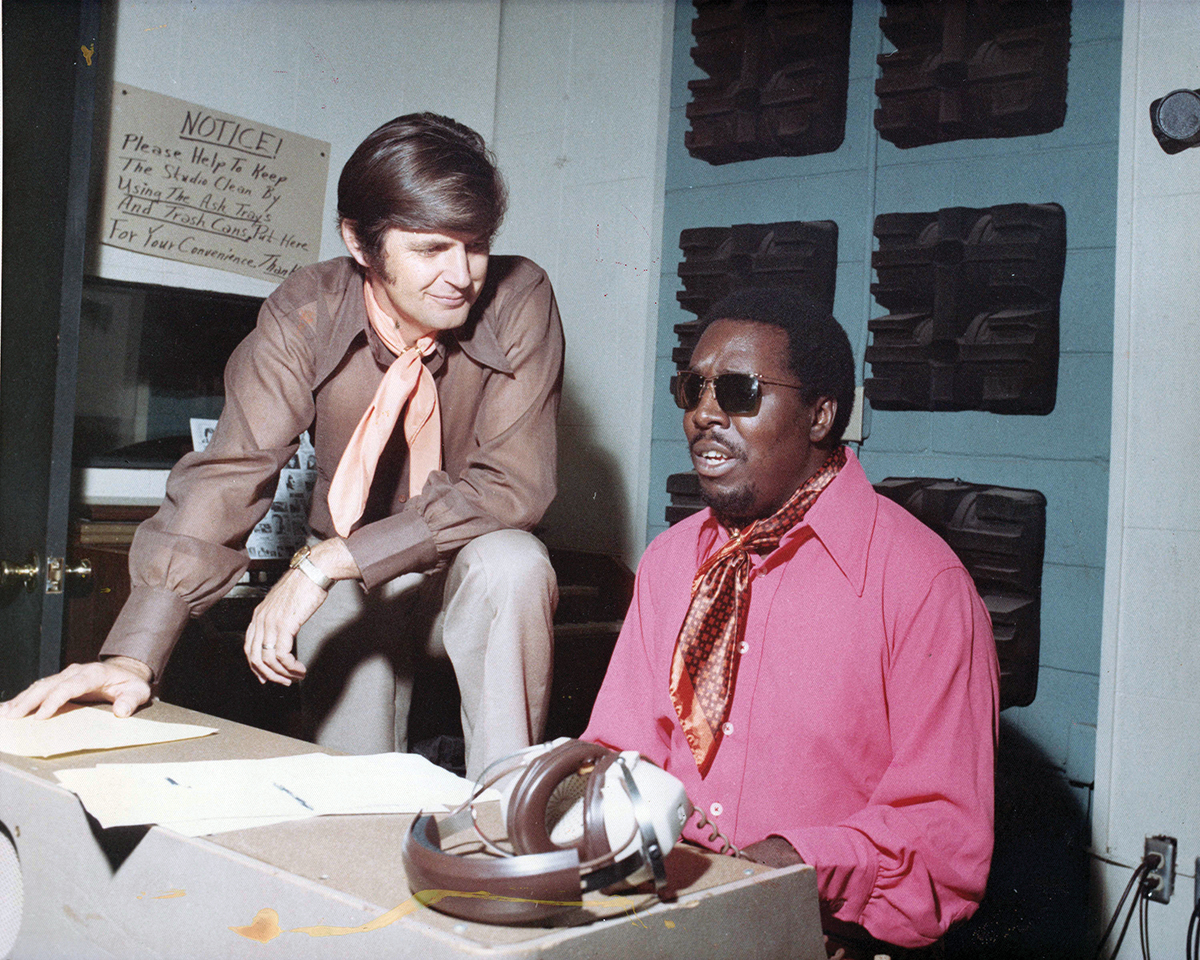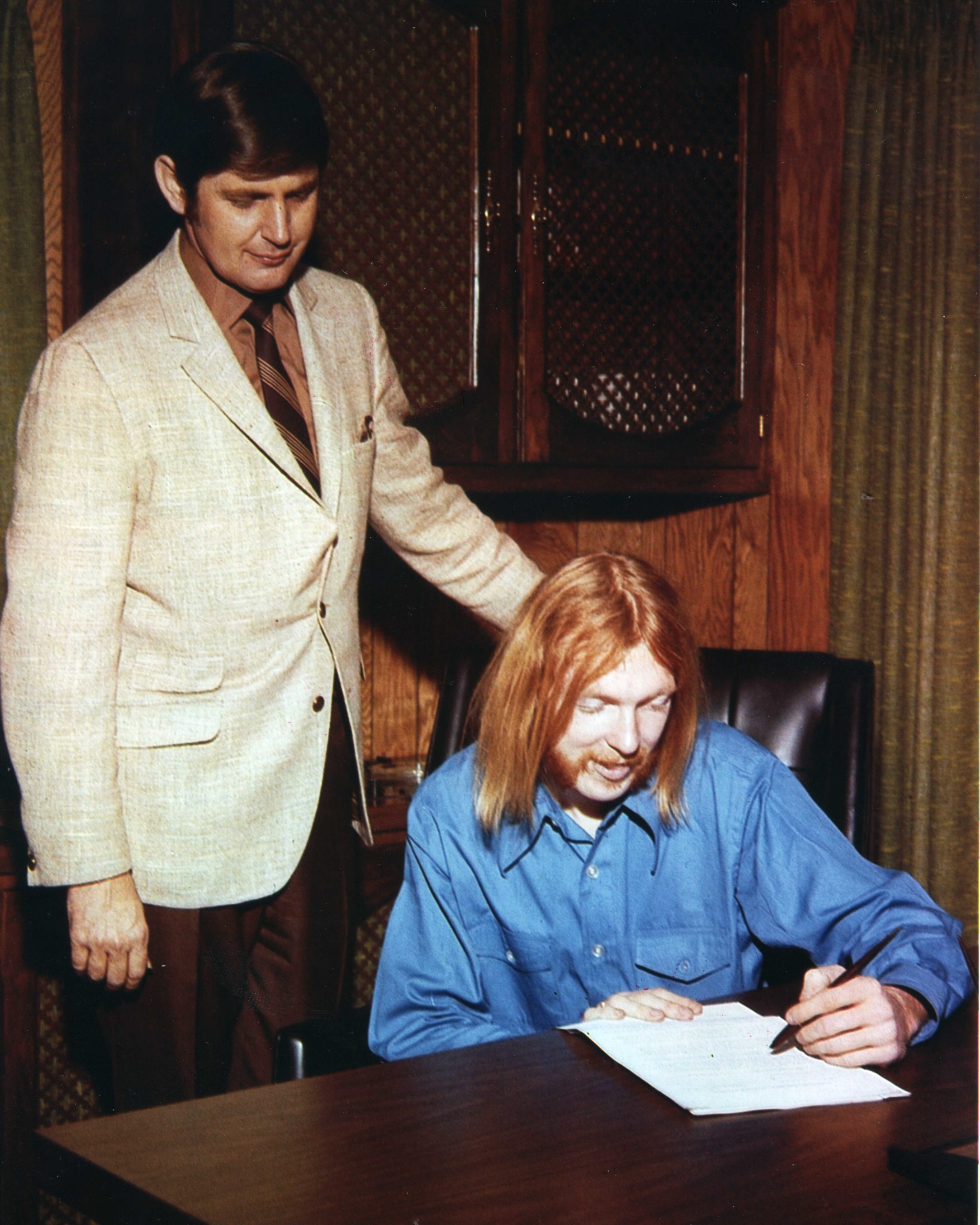It’s been two years since Rick Hall, the founder of FAME Music studios in Muscle Shoals, published his autobiography, The Man From Muscle Shoals: My Journey from Shame to Fame. Hall was also prominently featured in the 2013 documentary, “Muscle Shoals.” In both, he speaks frankly about growing up in squalid poverty in rural northwest Alabama, sleeping on straw with no toilets, and dealing with rejection by his mother, his schoolmates, and by others in the music business. Overcoming crushing personal tragedies in the death of his first wife and his father, Hall persevered to become one of the top music producers and publishers in the country, writing songs as well as producing hit records for such R&B singers as Aretha Franklin, Wilson Pickett and Otis Redding, and mainstream acts like the Osmonds and later, country singers Mac Davis and Jerry Reed, among others. He rightfully earned the title, “The Father of Muscle Shoals Music.” Now 85, he enjoys spending time between his home and his beach condo with his wife, Linda. Two of their three sons work in the music business and a third is a lawyer involved in the legal side of the music industry. The Halls donated their 23-room home in Russellville to the Alabama Youth Ranches, which operates it as FAME Girls Ranch for abused and neglected girls. – Lenore Vickrey
Were you pleased with the way the book turned out?

Yes, I was very pleased with the book. Everyone that I wrote about who has commented has felt like I treated them fairly in the book. The general public has loved it.
The book details Hall’s life from his childhood which he described as a family living “the life of poor struggling nomads.” Born in Mississippi, he grew up in Franklin County as the son of sharecroppers. “Life at Liberty Hill [a small community west of Phil Campbell] was full of toil and poverty, which only inspired me more to pursue my passion for music,” he writes.
Are there any stories you didn’t get to tell?
Yes, there are lots of stories that I didn’t tell. My whole life is a story.
What was your favorite memory of a recording session?
I guess my most memorable sessions were with Wilson Pickett, Clarence Carter, Bobbi Gentry, Mac Davis (who I produced more albums for than anyone else in my career), Jerry Reed and Etta James.

What’s your favorite song recorded at FAME studios?
“Patches” by Clarence Carter (1970) and “Hey Jude” by Wilson Pickett (1969).
In the “Muscle Shoals” movie, Carter says Hall wanted him to do the song, but he didn’t like it at first because of the negative way he thought it portrayed black people. The lyrics talk about a man’s father who, without an education, “did wonders when the times got bad; the little money from the crops he raised barely paid the bills we made.” On his deathbed, he calls on his son, “Patches,” to carry on for the family, and Hall saw many similarities in the song’s characters in his own life: “It was my story. That was my father.” The song went to number one. It “remains close to my heart because it reminds me of my father and the hard times poor people endure, regardless of creed or color,” he writes.
Wilson Pickett’s recording of the Beatles’ hit “Hey Jude” was the idea of guitarist Duane Allman, but Hall wasn’t initially convinced it would work. But it did, with Hall at the controls, Allman playing his Stratocaster Fender on a piano stool and Pickett “screaming his lungs out, everybody in the studio went wild,” Hall recounts in his book. Atlantic Records head Jerry Wexler credited Hall with a “stroke of genius” and the record was a hit. “That was the beginning of Southern rock,” he said, pioneered by the Allman Brothers Band.
Are you working on any new recording projects these days?
I’m not working on a project right now, but I’m always looking.




